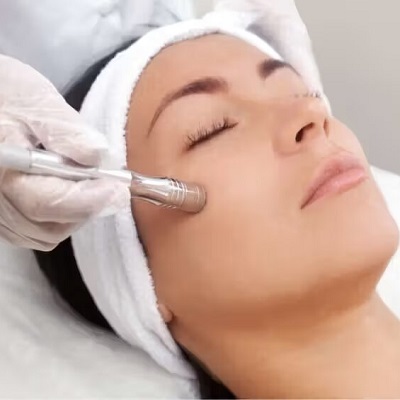Dealing with acne can be a frustrating experience, often exacerbated by environmental factors like dry air. One effective solution recommended by many dermatologists, including specialists at Acne Treatment Clinic in Oman, is the use of a humidifier. This article explores the various benefits of humidifiers for acne-prone skin, how they work, and tips for optimal usage.
Understanding Acne and Its Causes
Acne is a common skin condition that affects individuals of all ages. It arises from various factors, including hormonal changes, excess oil production, clogged pores, and bacteria. Environmental conditions also play a significant role. Dry air can strip moisture from the skin, leading to irritation and increased oil production as the skin tries to compensate. This excess oil can clog pores, creating a breeding ground for acne.
The Role of Humidity in Skin Health
Humidity is crucial for maintaining skin hydration. Low humidity levels can cause the skin to become dry and flaky, which can trigger an overproduction of sebum—an oily substance that can lead to acne. By introducing moisture into the air, a humidifier can help maintain optimal humidity levels, reducing dryness and its associated skin issues.
How a Humidifier Helps Acne-Prone Skin
1. Hydration Boost
Using a humidifier adds moisture to the air, which can help keep your skin hydrated. Well-hydrated skin is less likely to produce excess oil, which can reduce the likelihood of clogged pores and breakouts. This hydration boost is particularly beneficial in dry climates or during winter months when indoor heating can deplete air moisture.
2. Reduced Irritation
Dry air can cause skin irritation, leading to inflammation and redness. By maintaining a balanced level of humidity, a humidifier can help soothe irritated skin, reducing the redness associated with acne. This calming effect can enhance the overall appearance of your skin, making it look healthier and more vibrant.
3. Enhanced Healing Process
Proper humidity levels can accelerate the healing process of existing acne lesions. Moisture helps the skin to regenerate more effectively, allowing acne scars and blemishes to heal faster. This is particularly important for individuals undergoing treatment for acne, as many treatments can leave the skin sensitive and in need of additional hydration.
4. Improved Skin Barrier Function
The skin barrier plays a vital role in protecting the skin from environmental stressors and maintaining hydration. Low humidity can compromise this barrier, making the skin more susceptible to irritation and breakouts. A humidifier can support the skin barrier function by ensuring that the skin retains moisture, leading to healthier and more resilient skin.
5. Prevention of Dryness-Induced Acne
When skin becomes excessively dry, it can trigger a cycle of acne breakouts. The skin compensates for the loss of moisture by producing more oil, leading to clogged pores. By using a humidifier, you can prevent this cycle, keeping your skin balanced and reducing the likelihood of acne flare-ups.
Choosing the Right Humidifier
Types of Humidifiers
When considering a humidifier, it's essential to choose the right type for your needs:
- Evaporative Humidifiers: These use a fan to evaporate water and release moisture into the air. They are self-regulating, meaning they won't over-humidify a room.
- Ultrasonic Humidifiers: These utilize ultrasonic vibrations to produce a fine mist of water. They are quiet and energy-efficient, making them ideal for bedrooms or living areas.
- Steam Vaporizers: These heat water to produce steam, which is then cooled slightly before being released into the air. While effective, they can be less energy-efficient and may require more maintenance.
Considerations for Use
- Maintain Cleanliness: Regularly clean your humidifier to prevent the growth of mold and bacteria, which can worsen skin conditions. Follow the manufacturer's instructions for cleaning and maintenance.
- Monitor Humidity Levels: Keep an eye on humidity levels using a hygrometer. Ideally, indoor humidity should be between 30% and 50%. Excessive humidity can also lead to other skin issues, such as fungal infections.
- Use Distilled Water: To prevent mineral buildup and maintain air quality, use distilled or demineralized water in your humidifier.
Integrating Humidifier Use into Your Skincare Routine
Skincare Products for Acne-Prone Skin
While using a humidifier can significantly improve skin hydration, it’s essential to combine this with an appropriate skincare routine. Consider using non-comedogenic moisturizers and hydrating serums that complement the effects of the humidifier. Look for products containing ingredients like hyaluronic acid, glycerin, or ceramides to help lock in moisture.
Consulting Professionals at an Acne Treatment Clinic in Oman
For personalized advice on managing acne and incorporating a humidifier into your skincare routine, consider consulting professionals at an acne treatment clinic in Oman. They can provide tailored recommendations based on your skin type and acne severity.
Conclusion
Incorporating a humidifier into your daily routine can be a game changer for individuals with acne-prone skin. By providing hydration, reducing irritation, and enhancing the skin's healing process, humidifiers can help improve your skin's overall health. Alongside a consistent skincare routine and professional guidance from an acne treatment clinic in Oman, you'll be on your way to clearer, healthier skin.






Comments